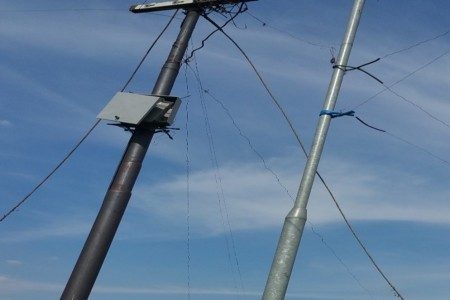South Africans have familiarized themselves with the government’s priority list when the electricity is mentioned daily. Power cuts affect everything from factory production to mining operations and even chaos on the roads. It is a real crises and the African National Congress (ANC) government who has been in power for the last 21 years, have once again stated the importance of prioritizing the power shortage.
Eskom was right, and the ANC government was wrong when in 1998 the power giant approached the Mbeki administration to invest in electricity, to keep up with the country’s economic growth. Thabo Mbeki afterwards admitted the government was wrong in not heeding the warnings of Eskom. Mbeki said investment at that time would be a waste by building up excess capacity. There was no foresight of the expanding population growth or the influx of foreigners and economic growth. Instead, the government waited until 2004 before deciding that Eskom should built new power plants.
If the ANC government heeded the warning in 1998, the power crises could have been averted. Noble of Mbeki to admit the government was wrong, but that does not help the recurring problem South Africa faces. The power cuts and load shedding on a daily basis throughout the country have created additional problems, and after nearly 15 years, the government has placed the power crises as a priority. Time is meaningless, there is no rush to escalate the urgency of dealing with mismanagement, corruption and potential increase in crime due to the power problems.
South Africans are notified daily throughout the media of impending power cuts and called reduce the demand on the electricity grid by switching off non-essential appliances and geysers. Every day there is a maintenance crises, cable theft, no diesel and other spin stories why the power giant cannot supply the country with electricity.
People are becoming accustomed to life in the dark and the inconvenience of depending on government to provide electricity. Alternate measures are sought to ensure that some form of stability is attained. The wind and renewable solar energy are cost-effective, reliable and sustainable. South Africans are moving forward and attempting to find solutions to ensure that the quality of life is not downgraded any more than it has been over the last 20 years.
The ANC government is a non-responsive government because it is a non-delivery government. The power crises is a cause for concern, especially when considering the billions lost in mismanagement, unaccounted for, or lost in a system footed by taxpayers.
Ironically in 1996 Eskom generated a capacity of 42000MW and produced slightly over 41000MW. Today Eskom’s capacity remains at 42000MW and can only produce 28000MW. The shortage has nothing to do with increased consumption, but rather with decreased production.
It would seem that the Africans are not skilled with electricity production, judging by the rest of Africa. It is a simple fact, that although the knowledge was available, nothing was done to expand the generating capacity. It is all about shoddy maintenance, corruption and greed.
South Africa is not so bright now; lights are dimming for the third world country. No longer can the power shortage be blamed on Apartheid. It is the zero service and incompetence of the ruling ANC government that has failed the people. Perhaps the ANC agenda is to bring South Africa in line with the rest of the dark African continent.
Opinion by Laura Oneale
Read more at http://guardianlv.com/2015/05/south-africa-electricity-top-of-governments-priority-list/#O3McrvZIeAAGEZMP.99

No comments:
Post a Comment